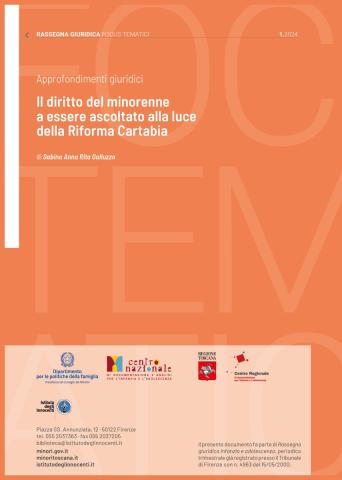
The right of a minor to be heard in the light of the Cartabia Reform.
Every minor has the right to be heard in all matters concerning them and procedures in which they are involved. First and foremost, this right is recognised at international level by the Convention on the Rights of the Child, adopted in New York on 20 November 1989 and ratified in Italy by Law No. 176 of 27 May 1991. Through this Convention, a minor, formerly seen as a passive recipient of rights, is then able to own those rights. The need to ensure minors’ maximum participation in the decisions that affect their existence is further affirmed in the European Convention on the Exercise of Children's Rights, adopted in Strasbourg in 1996 and ratified by Italy with a Law passed on 20 March 2003.
In Italy, the right of minors to be heard stems from the so-called Filiation Reform, which has stipulated that children who have not reached the age of 18 but have turned 12, or are even younger, if capable of discernment, have the right to be heard in all matters and procedures concerning them.
This principle has been taken up by the very recent Cartabia Reform which, with the aim of emphasising the central nature of minors’ interests, has incorporated it in the Code of Civil Procedure, specifically in the new Article 473-bis.4 of the Code of Civil Procedure.
Attached is an in-depth legal analysis on The right of a minor to be heard

